Events & Promotions
| Last visit was: 14 May 2024, 06:59 |
It is currently 14 May 2024, 06:59 |

Customized
for You
Track
Your Progress
Practice
Pays
10:00 AM PDT
-11:00 AM PDT
12:00 PM PDT
-01:00 PM PDT
01:00 PM PDT
-02:00 PM PDT
10:00 AM EDT
-10:30 AM EDT
11:00 AM IST
-12:00 PM IST
11:00 AM IST
-12:00 PM IST
08:00 PM PDT
-09:00 PM PDT
10:00 AM EDT
-02:00 PM EDT
01:00 PM EDT
-02:00 PM EDT
| FROM Haas Admissions Blog: Women in leadership: Two impactful Haas alumnae you'll want to meet |
This is the first post in an occasional series featuring women who are leading innovation, growth, and success across multiple industries. We start with two Haas alumnae making an impact in the food industry and how the Berkeley MBA helped them get where they are today. As Managing Director at Cowgirl Creamery, Amanda Parker, MBA 18, leads the business’ strategic growth, providing vision and leadership to the company’s production, distribution, retail and direct-to-consumer teams. Founded in 1997 in Point Reyes Station, California, Cowgirl Creamery now sells its cheeses and dairy products to more than 500 stores, farmers markets, and restaurants nationwide.  Anita Ratnathicam, EMBA 16, Food Program manager at Google, oversees the food spaces in Sunnyvale, including cafés, micro kitchens, and hubs. She also helps set the strategy for continuing to nourish the company’s employees as Google grows worldwide. What is it about the food industry that is so compelling to you? Anita (Google): Food touches everyone. We all eat and have emotional connections to food. In addition, the food system is far-reaching, providing jobs for many and having integral links to the environment. Amanda (Cowgirl Creamery): Food is part of how we show love and how we show up in the world whenever we break bread. The food business is universal, global. For me, it is both a personal and a professional passion. How well are women represented in the food industry and in which capacities? Amanda: The cheese industry specifically has long had good female representation. Historically, many women—especially those who helped kick-start the American artisan cheese revolution in the 1970s and 1980s—started making artisan cheese to feed their families. For example, in the cheese industry, a group we affectionately call the “goat ladies” started making cheese to provide their families with alternatives to cow’s milk cheeses, and at a higher quality level than they could find in the supermarket. Anita: Like many industries, there is a lot of representation at the ground level and a drop off in leadership roles. Approximately 42% of line-level employees in food service are women, yet 71% of leadership roles are held by men. Lately, the issue of sexual harassment and inequality in the food system as a whole has gained attention, which is hopefully the beginning of a better environment for women to continue careers in this area. Amanda: As in many industries, building a pipeline for women to be able to move into management positions is a challenge. Cowgirl Creamery was founded by two women, and our leadership team is predominately women. However, we recently became part of the Emmi Group, a global, publicly traded Swiss dairy company, where management is mostly male. I feel proud to be one of the few female managing directors among my executive peers across 14 countries. Haas puts a stake in the ground that says you are here to learn about yourself as a leader, not to fit into a mold.” You’ve both moved from smaller organizations to very large ones. How has that affected your responsibilities? Anita: One of the advantages of being director of operations at Good Food Guys—which many will recognize as the people behind Mixt and Split—was that we could be nimble and scrappy. Larger companies move more slowly because you need time to create alignment with stakeholders. The flip side, of course, is that you have a lot more resources. The most fun part of my job is looking at ways to have a large-scale impact on the food system, as a whole. Amanda: I describe my role as being the shepherd of the changes that come with being part of a global company. A degree of tension is inherent to growth. We are in the midst of finding a way to bridge and maintain the culture at Cowgirl while still growing our scale. The opportunities and challenges are melded together. And Anita is right, more access to resources is one of the positive changes. What prepared you for the job you have now? Who were your mentors? Anita: During my 10 years as regional restaurant manager at Nordstrom, I benefited from many great role models. I learned from observing them and being thoughtful about their actions, making note of what works and what doesn’t. By and large, we learn when we stumble; you acknowledge that and push forward. Amanda: I agree with that. It’s a day-by-day experience, and we’re all still learning. If I make 10 mistakes a day and learn 10 new things, that is a good day. There is a constant need for humility and curiosity, to be a Student Always, really. As to mentors, strong women—my mother, for a start! Certainly Sue Conley and Peggy Smith, the original Cowgirls. I look for advice from a range of friends, classmates—whoever will be the most helpful in a given situation and offer a broad array of perspectives. Anita: Former bosses, my peers, and classmates have all shared their secret sauce at one point or another. You both mentioned classmates. How strong is the Berkeley Haas network? Anita: My classmates are my personal board of directors. We’re still very close and connected. Amanda: I often use my commute time to get in touch with classmates, to give a shout-out or ask a question. This provides me with both trusted sounding boards and opportunities to positively impact Cowgirl Creamery and Tomales Bay Foods, my own business through my network. For example, I have a classmate who is working in regenerative organic agriculture right now, and it’s an area my company is continuing to develop further. Being able to not only have thought partners but actual industry experts is one of the best parts of what Haas gave to me in friends and colleagues. What advice would you give people aspiring to leadership in the food industry? Anita: My rule of thumb applies in any industry: Be the best at the job you have; show people what you are capable of and good things will come. Amanda: Lead with authenticity. When I started my MBA studies, I thought leaders had to be strong and unflappable. At Haas, I was able to challenge those expectations and rebuild how I wanted to shape my own leadership style. I’m now better prepared to balance the quantitative, qualitative, and emotional aspects of leadership in my own way. Or, put another way, the strong, goofy, and vulnerable parts of my personality. I’m not afraid to be firm, and I’m not afraid to sing showtunes to my sales team to make them laugh. Anita: I agree. Haas puts a stake in the ground that says you are here to learn about yourself as a leader, not to fit into a mold. I pushed past the impostor syndrome hesitation to understand my place as a leader. Having the space and support to explore yourself in a place of psychological safety is the real return on investment. What gives you the most satisfaction in your role? Anita: Being surrounded by a group of smart, passionate, driven individuals and collaboratively solving wicked problems. Google is an incredible organization as far as the things they are doing for good in the world. I’m looking forward to contributing to that effort. Amanda: What’s most exciting to me right now is developing our people. Cowgirl Creamery is in a new phase of growth. I get fired up thinking about what that means from a representation perspective and being able to educate, teach new skills, give new opportunities, and expand the commitment that we have to our people. 
|
| FROM Haas Admissions Blog: Take 5 with Clark Kellogg |
A founding partner of The Berkeley Innovation Group, Clark Kellogg has been a pioneer in design thinking. Here the Berkeley MBA lecturer talks about what he teaches: the relevance of creativity and innovation in today’s more complex world.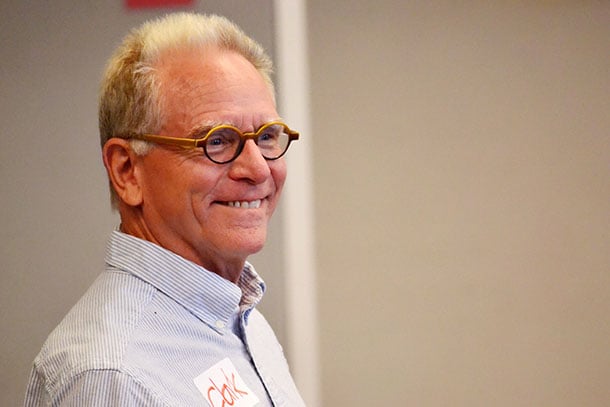 Why is creativity important for business leaders? Coming out of WWII, corporate culture was a mirror of military culture. It was hierarchical. It was a command-and-control model. You keep your head down and don’t question the executive. That was the paradigm, and it wasn’t the tradition for business culture to value creativity. Today the world is in dire straits, and if we keep doing what we’re doing—I’m thinking climate change—we’ll perish. We need to have the capacity to think creatively, to reframe problems, and to be more comfortable with the ambiguous nature of these wicked problems. Design thinking is the Trojan horse that allows us to approach and get inside these problems. It’s a tool kit that helps us confront complex problems that can’t be solved by traditional methods like Six Sigma. So, what is design thinking? Design thinking, we often joke, is a bad name for good idea. It came from the design professions and the training we (as designers) received to solve problems by first understanding the users and clients, and to think more creatively about problems—to be open to things that are new. An easy way to stereotype it is to first think about the traditional process of management consulting. It’s often a hypothesis model. Likely the consultant has an answer in the drawer already that they’ve developed from experience. And it works for well-known problems like improving a supply chain. But it doesn’t work well if you’ve got problems that are very complex or completely new. There you need a process model, not a solutions model. Discovery and understanding are the first steps. Then you need to immerse yourself in the ecology of the issue so you can define the real problem. Then there is the ideation phrase: ideas without judgment. You sort those out and move on to experimenting and prototyping, and finally arrive at a solution. The interesting thing is, most of the time you end up solving a problem that was different from the one you thought you had initially. I think Haas has been admitting a different kind of person." How do you teach something as ephemeral as creativity and innovation to a room full of quants? The way I do it is to focus on a series of daily practices that make it non-weird to think differently—a series of repeatable personal practices. Draw every day, or write a poem, or create a piece of art, or keep a journal, or do photography. Every day. These daily practices combine together to create the Practice of Curiosity. This is important because curiosity is always better than judgment. And it’s not all above the shoulders. We have a life of the mind, the body, and the spirit. In the Creativity Lab course we use physical movement to move creativity around the body. We do some sort of tai chi or meditation, or mindless wandering. All these things are creatively based, so it’s non-weird to slow down, to see things differently, so that it’s not strange to walk into a room and organize yourself around non-linear thinking. 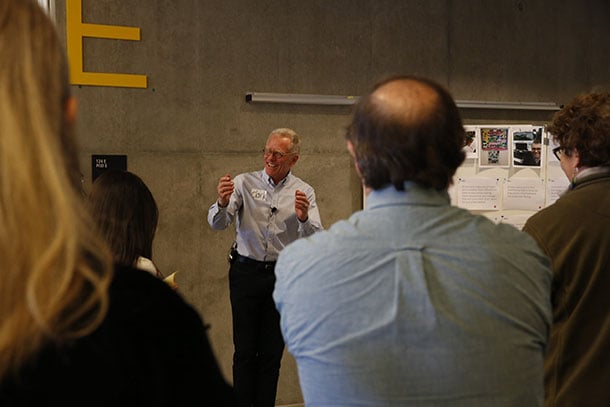 What is your favorite classroom activity or assignment? One is I have people draw a self-portrait, an 11x17 with a Sharpie. At first, everyone freaks out, so, I tease them: “How many of you graduated from kindergarten?” I ask. Some of the portraits are stick figures, while others are more complex. Then I have them annotate the portrait by answering four questions: What is the knowledge you use the most? This forces people to define how they think, the lens through which they see the world. And it forces them to recognize that people have different ways of thinking. The next question is: What are you most passionate about? The third is: What are your deepest fears? And, yes, I absolutely expect people to be honest with their classmates. It’s a strange level of disclosure. But since many feel they’ve already made fools of themselves with their drawing, it’s always surprising how honest people can be. Finally: What do you do to ground yourself? I call my mom, I run, I ride my motorcycle. Then you reintroduce yourself to your teammates. You’re in a different world. You know a lot about your teammates, and you need to use that with respect. But a rising level of communication and trust leads to a high level of performance. Communication, trust, and performance lead to a good outcome. What do you hope your students will take away from your class? To be competent design thinkers. To develop confidence in their own skills. To not feel ill at ease when they are out of their comfort zone. To become creative leaders and embody the four Haas Defining Leadership Principles. I think things have changed over the years. My experience is that students at Berkeley Haas have moved from a spot of deep resistance to having a higher tolerance for creative thinking, even embracing it. I think the reason is that Haas has been admitting a different kind of person. Berkeley is known for greater social awareness. It’s not a place for those who are just looking for a straight line to the corner office. It’s a place where people believe there is a higher probability that we’ll come up with different solutions, and have a better chance of surviving, than if we simply embrace unbridled capitalism. The expertise and insight your professors bring helps deepen and enhance your MBA journey. By selecting a top school with top-notch professors, you maximize your experience. Read more from the Take 5 with a Professor series:

|
| FROM Haas Admissions Blog: EMBA student finds leadership inspiration among Haas women |
Megan Zweig, EMBA 19, enrolled at Haas because she wanted to see more women leaders in the business world.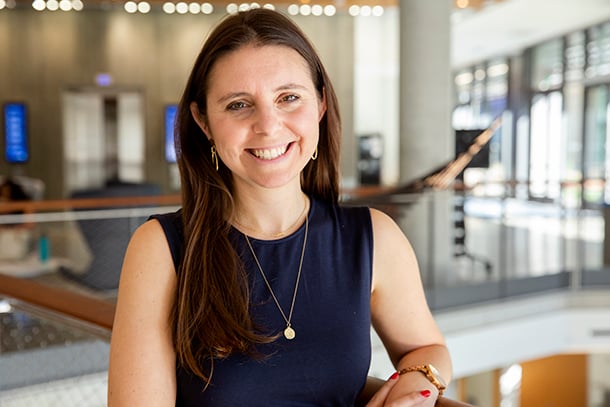 “I was in San Francisco at the women's march in January 2017, and I recognized that if I wanted to see more women in leadership at the highest levels, I had to be willing to be one of them,” she says. “And if I wanted others to see me as a leader, I needed to first see myself as one. For that, I needed to get out of my comfort zone in my career and develop skills that could help me lead across a variety of disciplines.” It takes support from others to accomplish anything of importance, which is where the community of women at Haas came in for Megan. In the Berkeley MBA for Executives program, she's meeting other women aspiring to their full leadership potential. “I've found the network of women at Haas to be particularly powerful for expanding my aspirations and boosting my confidence,” she says. “These are accomplished, caring, amazing women who are rooting for me and will be there on my good days as well as the bad days–just like I'll be there for them.” At Haas, I've learned that not having a traditional background for a role is no reason not to pursue it." At a recent healthcare conference hosted in San Francisco by Megan's company, Rock Health, two of her classmates, Malini Singh and Linda Liu, attended to support her as she presented to hundreds of attendees about her team's market research. Malini and Linda posted updates on the conference to the EMBA Slack channel–which triggered a flurry of support and other posts about Haas students' accomplishments that week: one classmate had landed a new job and another had launched an employee resource group at his organization. “That day felt really special,” Megan says. “I had a whole crew of people rooting for me. The power of that support network will be the most important thing I carry with me beyond graduation.” Megan is equally generous in encouraging her peers. During her time at Haas, she's served as co-Vice President of Careers for her cohort, and has helped to host a variety of events that support the career advancement of her classmates. One of the most memorable happened in September, when she, fellow classmate Suprita Makh, and Janelle Hofeditz, Director of Strategic Initiatives for Haas, collaborated on an event for EMBA women to bolster their compensation negotiation skills. “We hosted a dinner with small group discussions,” Megan says. “We invited our classmates to share their experience negotiating compensation–what has worked, what hasn't, what holds us back–and brainstormed ways to ask for what we want and deserve. It was an evening to tap into the collective wisdom and experience of all the women leaders in our class.” Megan cites Professor Maura O'Neill's New Venture Finance course as a key part of expanding her perspective on new ways to advance her career. “Maura is so generous and gives us the inside scoop on her experience as an entrepreneur and investor,” she says. “One of my favorite assignments was being part of a team that interviewed 14 venture capitalists, more than half of whom were women–despite the fact that fewer than 20% of all venture partners are women. I realized that these were relationships I wanted to be cultivating anyway, and the assignment gave me the opportunity to connect with investors I admire.” The Berkeley EMBA has given Megan a broader skill set and newfound confidence that she's using to grow in her current work. At Rock Health she's expanded her role beyond market research into marketing, and is applying the Haas curriculum and network to open the door to a career in venture capital. “At Haas, I've learned that not having a traditional background for a role is no reason not to pursue it,” she says. “I now have a foundation of business knowledge, but ultimately what matters is my commitment to others and willingness to keep learning. I see these qualities in my classmates. It's these intangibles that make a great leader stand out.” 
|
| FROM Haas Admissions Blog: Reflecting on the decade: Berkeley grads get real about their experience with Haas |
 Where do you want to be in one year? How about five years? What steps will you take in 2020 to ensure you’re making strides to achieve these goals? Many people who set lofty career goals look to an MBA to help them turn their vision into reality. Hear from real Haas alumni on when they knew that a Berkeley Haas MBA was the right fit for their goals. Personalize your MBA curriculum to reach your dreams Earning an MBA is a great way to showcase your uniqueness in the workplace. Many traditional industries are seeking a modern approach to solving problems via innovation. For this reason, MBA graduates are beneficial across all sectors and are critical players for businesses that are serious about changing their core business models. Market differentiation was the reason Nony Onyeador, MBA 18, made an MBA an integral part of her career goal, which is to enter the entertainment industry, “My business degree is unavoidably tied to my creative goals. To reach them, I looked for a program that would provide me the best opportunity to gain a well-rounded, personalized MBA. Berkeley Haas came out on top.” Ricky Tan, MBA 17, says that he decided to go to Berkeley Haas because, “From a career perspective, I wanted to press ‘reset’ and become more fluent technically. I believed an MBA in the Bay Area would be the best fit for me to be exposed to both the industry and the people from whom you can learn the essential skills.” Now Tan is the founder of TokenData, a cryptocurrency data and research firm based in San Francisco. Join a warm community for ongoing support While pursuing your MBA, you’ll meet and connect with a great deal of faculty, students, alumni, and professionals associated with Berkeley Haas—at the school and in the surrounding community. This group of like-minded individuals will become your tribe as you get to know them and help you expand your network. Because these connections will vary in industry, geographic location, and function, these relationships can also translate to promising opportunities and friendships in the future. The strong sense of community and networking is one of the reasons Megan Bradfield, MBA 15, decided to attend Berkeley Haas in the first place. “I remember sitting on a sunny bench in the courtyard with an admissions officer, still wearing my Chicago-winter boots. Student after student greeted her, and she knew everyone’s name. That’s when I knew Berkeley Haas was for me: warm weather and warm friendships. I wanted to go to a business school where everyone is eager to learn, not just to compete. To me, being people-centric is a way of being innovative, and Haas is definitely people-centric.” Rachel Adams, MBA 17, was able to lean on her classmates when it came to reaching her professional goals, post-MBA program. “My classmates were happy to help me with my job search, so when I finalized my list of dream retail-tech companies, my Haas network helped me land coffee chats that led to formal interviews with all five organizations I targeted.” Discover what lies outside your comfort zone Taking risks is often linked with successful business people. Whether that means finding the courage to leave a comfortable job to start your endeavor or if it means switching careers to find a more fulfilling industry—many people make it their goal to take more risks in their life. By obtaining an MBA, you’ll learn how to assess your opportunities and take calculated risks that can help you achieve your goals. For example, Jose Alonso, MBA 19, said that his MBA, “Was a unique opportunity to pivot and dedicate my passions through calculated risks while being supported by a strong Haas food community and alumni network.” Gain confidence in yourself to reach higher levels An academic study that polled 54 MBA graduates on ROI of an MBA, taking into consideration costs vs. benefits, found that participants ranked increased confidence as one of the highest-weighing and most important non-financial benefits of earning an MBA degree. For those who feel that their self-doubt or lack of confidence is hindering them in the workplace, an MBA could be a great goal for you to set in 2020. Hady Barry, MBA 17, said that she initially saw the MBA experience as a way to incubate ideas for a social enterprise in the education space. But, after her first year at Haas, she realized she wasn’t ready to make the leap into entrepreneurship on her own. “There was still a lot I needed to learn when it comes to bringing about social change. I realized that working in the social impact consulting space would provide the additional training I needed. I gained from Haas confidence in knowing that there's nothing I can't do. I stretched myself greatly in leadership roles, but this is also how I learned the most,” said Barry. Katie Benintende, MBA 15, used Berkeley Haas’ guiding principle ’Confidence Without Attitude’ to find her voice, and reach her goal of making an impact. Benintende started The Gender Equity Initiative, which is a student-led effort to increase the number of women in MBA programs. “Our initial goal was to have 40 percent women by 2020. Being involved with the Gender Equity Initiative taught me how to expand one’s influence. You can create enormous change by voicing your position in the right way with the right people,” said Benintende. Understand yourself — and others Different perspectives, cultures, leadership styles, races, ethnicities, genders, ages, religions, languages, abilities/disabilities, sexual orientation, gender identities, political opinions, and socioeconomic statuses run today’s business world. And, with fast-changing technology, products, information, and business is virtually borderless. If your professional goals are to be able to connect in the business-world more deeply, it’s essential to take a step back and learn about your leadership styles, as well as other perspectives in the business world, to be effective in your journey. An MBA is a great way to explore a variety of leadership, communication, and cultural business styles. Steven Weddle, MBA 15, said that the strategy class at Berkeley Haas, “Helped me understand the strengths and weaknesses of an enterprise I started with a classmate. We were able to adjust our strategy in ways that served us well.” Dominic Bea, MBA 17, used his MBA experience to differentiate his perspective from the one he’d been taught in the service. “The military tends to have one dominant style of leadership. At Haas, I learned different but equally valuable and productive leadership styles. I saw this in my classmates and how they operated.” Making a Berkeley Haas MBA your 2020 goal Think about your own goals. How does an MBA mesh with your vision? If you’re thinking about making the initial step and applying for your MBA in 2020 to reach your short and long-term goals, now is a great time to get started.
Stacey Chin, MBA 16, said, “I had clear goals for my MBA, and I [tailored] my experience at Berkeley Haas to realize these goals.” Now is your chance to do the same. Are you ready to start your Berkeley Haas application? Start here. 
|
| FROM Haas Admissions Blog: Mastering business models for industrial design |
Martha Davis, EMBA 18, had already launched several businesses before coming back for an MBA. Her entrepreneurial instincts were finely tuned, and she had a track record of launching successful start-ups. But she felt that she needed hard business skills—specifically, finance and investing knowledge—to grow a business with scale. “I just didn’t have the confidence to take on capital and investment at this scale and to really cross over into the grown-up business model,” she said. “I finally decided, I need a proper education.” Early in her career, Davis found her sweet spot at the intersection of fine art and technology. While pursuing a degree in sculpture, she discovered a career path that tapped her creativity as well as her affinity for technical problem solving. “I fell in love with industrial design,” Martha says. “It’s problem-solving using three-dimensional form.” Her first job was at Smart Design, a New York-based industrial design consultancy, where she helped clients identify user interface problems and develop concepts to solve them. “That, in and of itself, is a microcosm of starting a business,” says Martha. “It’s solving problems and developing products to fill user needs,” she says. “That trajectory is really entrepreneurial. You have to take a lot of risks.” It wasn’t long before she started her own business. One of the few female industrial designers in the industry, she founded Able Design to serve the niche of women’s health and pharmaceuticals. After Razorfish bought her company in 1998 she stayed on, growing it from 200 to 2,000 employees. Then the dot-com bust happened. “I found myself without work,” she says. “I bounced around, did a lot of strategy, but no real design work. I had a come-to-Jesus moment: I have to get back to making things.” She decided to make footwear and called her new company Martha Davis. Though it wasn’t her first start-up, it was the one that inspired her to invest in an MBA. I always thought design meant designing a thing, not a system. That was a humongous a-ha, very relevant to where I was struggling in my footwear business." In the Berkeley MBA for Executives program, she took everyfinance class she could find and discovered the “beautiful symmetry” of spreadsheets. She learned how to build financial projections and how to talk to investors. Her new financial understanding empowered her with “the ability to plug things in and know where you’re going to be in a few years,” she says. “It was an unbelievable power to me. It was like speaking a new language.” In one of her favorite classes,Applied Innovation, she learned how to translate her instincts for product design into an understanding of business model design. “I always thought design meant designing a thing, not a system,” she says. “I didn’t think about looking at opportunity based on a business model. That was a humongous a-ha, very relevant to where I was struggling in my footwear business.” Haas has not only helped Martha refine her current business, it opened the door to other connections and collaborations. A professor introduced Martha to a fellow Haas EMBA student, Marisa Mitchell, who was working on an effort to improve pointe shoes used by classical ballet dancers. It was right in Martha’s current sweet spot—product innovation in shoe design—and together the two women began developing a business model. “We are developing prototypes with a biomechanics testing laboratory,” Martha says. They were awarded a residency at Autodesk Technology Center, where they have six months to develop their product ideas with access to all sorts of tools. “They have this amazing facility with cutting-edge technology—every type of 3-D printer, laser cutter, CNC, water-jet, and all Autodesk software for free.” Another Haas introduction, Eli Andrews, fellow EMBA 17, led to a separate venture in the footwear industry, this one aimed at disrupting traditional manufacturing by introducing footwear that has no carbon footprint. Impact Inside is pushing to replace toxic materials, such as EVA, with more sustainable alternatives. “The business model is focused on large sea change,” Martha says. “We’ve created a movement around awareness that will hopefully begin to precipitate with regulatory changes.” Her concern for sustainability was one of the values she felt was enhanced during her time at Haas. “I will admit, when I entered the program, I didn’t think sustainability was something I would invest in deeply. But where I’ve come out on the other end is, it’s not a choice. I don’t want to make an other product that isn’t sustainable.” These values were part of the reason she chose Haas over other programs. “At the end of the day I felt much more aligned to the principles of the school and the culture,” she says. “I am so happy with my choice.” 
|
| FROM Haas Admissions Blog: How to describe your career aspirations in your 2020 MBA application |
 It’s the beginning of a new year, and many of us have thought about and set goals. Goal-setting is important for moving forward in life, relationships, and career. If you’re thinking of starting an MBA program in 2020, you'll need to learn how to define your goals when writing an application. With a thorough application, you can get one step closer to your ultimate professional dreams. The following tips will help you define and describe your career aspirations and stand out from other MBA applicants, whether you’re applying to the Berkeley Haas School of Business, or elsewhere. Appeal to your audience Before investing significant time and money into an MBA, you’ll want to know if it’s a good fit for you academically and culturally. Admissions committees see a large number of essays throughout the application process. To stay committed to the MBA program's core values, admissions officers are trained to look for specific elements in an application that deem you an academic and cultural fit to the school. Appeal to these needs by assessing yourself as a fit first. Get a feel for the school’s guiding principles, academic approach, campus, and culture before beginning your Berkeley Haas application.
MBA application essays help the admissions committee learn about who you are as a person and how you will fit with their academic community. Admissions officers look for students who can concisely describe their career aspirations. If this isn't an exercise you've performed in the past, you may quickly realize how difficult it can be to express your dreams. The following exercises can help you understand and write to the prompt when crafting essays for your Berkeley Haas application:
Every applicant has a unique background, interests, and personality. The essays are your biggest chance to let your voice shine through in your Haas application. Don’t be afraid to include your personal experiences when describing your career aspirations for your MBA application essays.
Admissions committees look for indicators that show how you will add value – both to yourself and the overall program. Use precise language and real-world examples to show how an MBA is a bridge to the next step in your professional life.
In addition to the content of your essay, the admissions committee will be looking to see that the candidate follows directions. Here are some best practices to follow when writing your MBA application essays:
Ready to start your application for the Berkeley Haas School of Business? Apply now. 
|
| FROM Haas Admissions Blog: Women in leadership: two Haas alumnae leading innovation in the healthcare industry |
Welcome to our series featuring women who are leading innovation, growth, and success in various industries. Today we talk with two Haas alumnae making an impact in the healthcare industry and learn how the Berkeley MBA helped them get where they are today.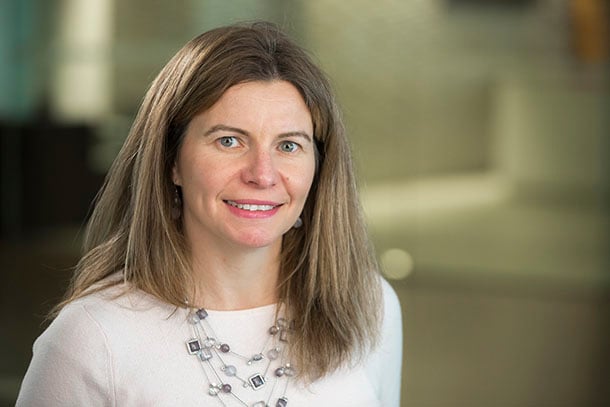 Sara Fernandez, MBA 14, is co-founder and COO of Healthcentrix, a digital health startup coordinating and automating care outside the clinic for more convenient, efficient, and effective care delivery. She previously worked at Amerisource/Bergen, Xcenda, and McKinsey. 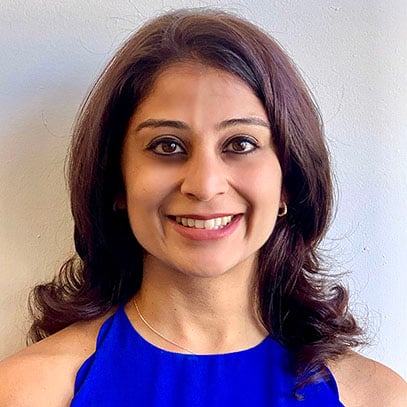 Shruti Nathan, EMBA 15, is the vice president of Strategy for AMITA Health, the largest faith-based healthcare delivery system in Illinois. Her role includes identifying partnership opportunities to grow the organization, optimizing service line distribution for increased access and maintaining the system’s overall network integrity. Prior to AMITA Health, Shruti worked in strategy & business development at Sutter Health. The conversation has been edited for length. What about the healthcare space has been bugging you lately, and how would you change that? Shruti (AMITA Health): Both as a healthcare consumer—as we all are—and as someone working in the delivery side of the industry, the lack of price transparency is a big problem. The bills are too complicated and too high. The US now spends 18% of GDP on healthcare—more than any other nation—and that percentage is only going to increase. We need to solve for that, to simplify billing so people—both patients and providers—understand what is being billed and paid for. Sara (Healthcentrix): I’m frustrated by the lack of change in the healthcare system, specifically in the US, where the system is built on profit. The result is a system where everyone wants to protect their own turf. Socialized medicine, in all its different forms, works well elsewhere in the developed world, and could work here, except that it has become politicized in a very negative way. That said, I do see opportunity to make change at the most basic level: in the patient/provider relationship. That is where Healthcentrix is working. Our cloud-based system promotes ongoing, frequent interactions outside of the clinic visit to promote prevention and disease management before the patient reaches crisis stage. Shruti: I agree, the pace of change is slow. We are slow to implement technology. Getting FDA approval of new drugs and devices is a slow process. Healthcare is somewhat of a dinosaur industry. Instead, we should be on the cutting-edge of change. Where do you want to take the healthcare industry, and where do you see your role and your company fitting in? Shruti: I think we need to work on healthcare accessibility. AMITA Health is committed to improving access to high quality care across all services and in every community we serve. We provide a full spectrum of care from birth through end-of-life care, and all that happens in between. That means making sure we have the right facilities and providers in place, and just as important, a seamless transfer system between facilities and providers. My role includes developing and maintaining an operations strategy that accomplishes that. I’m also responsible for growing the organization through a comprehensive assessment of the market and projection of future trends. Sara: At Healthcentrix we want to move the needle on effective preventive care delivered through regular contact between patient and provider. For example, instead of someone with a chronic condition seeing a doctor twice a year for check-ups, a provider using our technology can remotely monitor a patient’s vital signs and automatically modify his or her care plan. This is more convenient and more cost-effective than the current model. Right now, we’re in a pilot with a handful of primary care physicians who are using the technology with 2,000 patients. We’re also in discussions with a couple of teaching hospitals. Because we see this as the future of healthcare delivery, that is a good place to introduce our technology to tomorrow’s providers. Fearlessness is important. So is authenticity. When I found my authentic leadership style, I came out of the shadows and gained visibility and influence." You both have undergraduate degrees that aren’t totally aligned with what you’re doing now. How did you make the leap, and what prepared you for your current role? Shruti: From as early as I can remember, I wanted to be a doctor. I even started university in pre-med but ended up changing my major to architecture. However, I was able to marry my passion for healthcare and interest in architecture by pursuing healthcare architecture. After over a decade of master facility planning and design, I realized that while bricks and mortar are important, the real opportunity lies in optimizing for cost-efficiencies while improving quality, by innovating with technology and integrating healthcare systems. That is when I realized I needed an MBA to move my career to the strategy side. Sara: I studied chemistry as an undergrad and for my PhD, and did postdoc work in biochemistry. From there, I went to work at McKinsey. It was while I was at Xcenda, consulting with clients in oncology, biosimilars, and digital health, among others, that I enrolled in the evening & weekend MBA program at Haas to improve my business knowledge. Just eight months ago, I joined Healthcentrix. Moving from a career in large companies to a startup means I do it all now, and I rely on the skills and knowledge I gained at Haas. But perhaps the most important skill I learned in my MBA was flexibility and the ability to be comfortable with uncertainty. Shruti: I appreciated the way Haas curated my classmates in the Berkeley MBA for Executives. They all were able and willing to articulate their experiences so we learned not just from our professors and books, but from each other. You may be able to learn corporate finance anywhere, but you can only tap into the Haas culture at Haas. Which resources at Haas made the greatest difference for you? Shruti: The networking opportunities, without a doubt. Two encounters with people at events sponsored by the Haas Healthcare Association ultimately led to my being hired. But at the end of the day, it is definitely the quality of the trusted network that I know I can lean on whenever I need it. Sara: I agree about the quality of the larger network, but my classmates were the best resource possible. Their work experiences added so much to our discussions. Where else would you have people at companies like Google, Amazon, and Netflix all in the same place, raising their hands to say, “This is how we approach that issue." Shruti: Absolutely! I call on my Haas buddies for advice all the time! Our class’s https://gmatclub.com/chat group continues to serve as a platform wherein we brainstorm, affirm each other, and share our perspectives on everything from recruiting for talent to getting hired, from negotiating deals to managing salary expectations. I also appreciate that Berkeley Haas is part of a fully integrated campus. I took design classes at the School of Engineering, and audited classes at the School of Law and the School of Public Health. Sara: And now that I’ve graduated, the ability to audit classes is amazing. When the window opens to register for spring classes, I’ll be at my computer making my selections! Haas makes it easy to be a Student Always. What is the best piece of advice you would give to a woman aspiring to leadership in any industry? Sara: Don’t be afraid. I’ve learned to be confident, even when surrounded by uncertainties. Shruti: I agree. Fearlessness is important. So is authenticity. When I found my authentic leadership style, I came out of the shadows and gained visibility and influence. 
|
| FROM Haas Admissions Blog: 5 steps to requesting a Letter of Recommendation |
Whether you're considering applying to an MBA program or looking to switch careers, letters of recommendation are often necessary. Asking someone else to write a letter speaking to your character and outlining your strengths can be difficult—or even a little awkward—but if you follow these tips, the process is sure to be a lot smoother. Try not to stress out. Remember that people in positions of authority see these requests often, and they are likely used to writing letters of recommendation. That said, it does take some time and energy, so make sure you're appreciative. Follow these steps to make it easy for them to provide you with impactful, effective letters. 1. Decide whom to ask Your letters of recommendation should come from people who have had significant professional interaction with you—ideally one from your current direct supervisor. Choose those who can speak to your character and have a sincere enthusiasm for your long-term success. Their title or status is not important. What does matter is that they can provide anecdotes to describe your work ethic, leadership style, and what you can contribute to your MBA class. 2. Ask early The timing of your request will depend on when you plan to submit your application. It's best to ask at least four to eight weeks ahead of the deadline, but you may begin conversations about a recommendation as soon as you're thinking of applying. Whatever you do, don't wait too long. Remember that anyone who writes a letter for you is doing you a favor. 3. Plan a time to discuss in person Asking in person is more personal and gives you all the advantages of a face-to-face meeting, including the benefit of speaking about your letters right away. It also enables you to share your motivations for seeking an MBA and the reasons you're a good fit for Berkeley Haas. These discussions will likely enhance the quality and effectiveness of your letters. 4. Provide the right information Your recommendation is only as good as the information you give your references. You want individuals who can share detailed examples of your growth and measurable impact over a period of time or through a project. Check out our list of suggested discussion points (below) to help guide conversations with your recommenders. Consider jotting down answers to these questions before meeting with your recommenders to help guide the conversation. These talking points will help them assemble compelling LORs in a timely fashion. Discussion points:
Start by thanking them for taking the time to write a letter on your behalf. Once you find out where you're accepted, it's common courtesy to follow up with an update. Let them know that their efforts played a part in shaping your future. Reach out Gearing up for your MBA program is an exciting time. Remember your MBA application is holistic, and your letters of recommendation are just part of the story you're trying to tell. For more tips on how to prepare for your MBA application, or what to do when you’re ready to apply, contact one of our admissions offices today: Evening & Weekend MBA program MBA for Executives program Full-time MBA program 
|
| FROM Haas Admissions Blog: Haas inspires EMBA student to pursue career in diversity, equity, and inclusion |
Jason Atwater, EMBA 19, never thought that he could base his career on establishing diverse, equitable, and inclusive (DEI) work environments—until he came to Berkeley Haas. His time in b-school has changed the course of his career.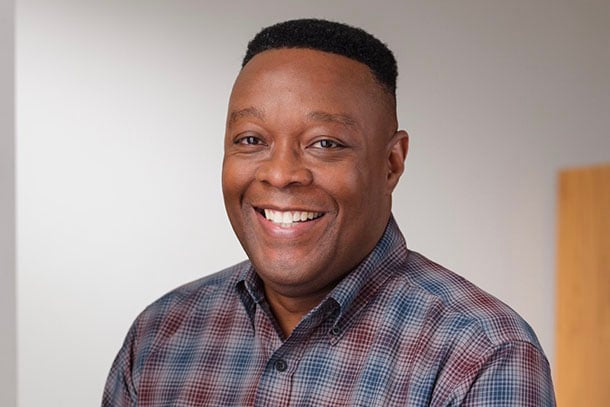 Through his work at Ancestry.com, Jason knows that nothing has the potential to be more diverse than a person's family tree. But sometimes this doesn't translate to one's work environment. That's why he and two Ancestry colleagues are launching a new employee resource group at the company called Black Roots. The group joins others that are focused on supporting female, LGBTQ, and military veteran employees. “My cofounders and I wrote a mission statement that we presented to the leadership, outlining how a group like this was needed to give black employees a voice and address the problem of attrition," Jason says. "The fact is, often people of color feel unwelcome in the tech world. We hope this group will help Ancestry attract more qualified black candidates—and better serve our clients, who of course include underrepresented minorities.” The need for inclusive, safe, and equitable education is pressing, and Haas is no exception. In 2018, the school delivered a targeted action plan that provides concrete ways to bolster enrollment of underrepresented minorities and to develop a more inclusive environment schoolwide. This DEI action plan was a direct response to a disappointing decline in the number of underrepresented minority students in Berkeley’s MBA programs. As part of the DEI action plan, Haas hired David Porter as its new chief DEI officer and Élida Bautista as director of inclusion and diversity. Jason was part of the group of students who vetted potential applicants for the chief DEI officer position. “Each candidate offered a presentation on some aspect of the Haas program they would change to make it more inclusive and diverse—and none of the candidates couched their words,” he says. “There was some tough criticism of Haas and some great ideas for how to further foster a culture of inclusivity. For example, updating the case studies in our coursework to be more current—most are 10 to 15 years old—and more reflective of the diversity of the business world today and tomorrow, rather than focused on an older white male CEO protagonist.” The Haas MBA can be career changing if you're willing to come with an open mind." Jason's passion for DEI and the insight that he could integrate efforts to make businesses more inclusive into his career were further fueled by a class he took with Professor Jennifer R. Cohen called Equitable and Inclusive Leadership. In one of the class assignments, students wrote a letter to themselves describing a DEI initiative they wanted to undertake; Cohen said she would check in with them about it six months later. Jason's initiative was the resource group at Ancestry, as well as serving on Haas councils that address DEI issues, including the Part-Time Admissions Diversity Council and the Alumni Diversity Council. “The school is going all out to correct DEI problems where it sees them, an effort I applaud and want to be a part of,” Jason says. Jason had long been interested in pursuing an MBA, and in 2018 the timing was finally right. He knew the degree would make him a stronger management candidate and boost his existing leadership skills. He chose Haas because of its Confidence Without Attitude vibe and the way the school offers students opportunities to tailor their programs through immersion experiences. In his fourth term, Jason and his classmates traveled to Amsterdam on a design thinking project for booking.com that explored how the company could expand its sustainable travel offerings; this Fall, he went to Australia under the auspices of the Global Network for Advanced Management (GNAM) program, exploring “negotiation and influence” at the University of New South Wales Business School in Sydney. “I've really appreciated that once you complete the first three terms of compulsory classes, you can really choose your own adventure,” he says. The Haas MBA can be career changing if you're willing to come with an open mind, according to Jason. “I've been interested in DEI for years, but I never saw engaging with it as a potential career,” Jason says. “That happened during my time at Haas.” 
|
| FROM Haas Admissions Blog: How to ace your video interview |
Video interviews continue to increase in popularity. 60% of hiring managers and recruiters use them to assess potential new hires according to a recent survey by Software Advice. The Berkeley Haas Evening & Weekend MBA program will follow suit and pilot a new interview process this year. In lieu of in-person interviews, you’ll submit 1-2 minute video answers to two specific questions. For the first question, you should share why you’re pursuing an MBA and why Haas is the best fit. The second question will ask you to share a leadership experience. We sat down for a quick Q&A with Jenny Clare, Associate Director of Admissions. What interview tips do you have for applicants? Don’t be too nervous or concerned. It’s a relatively easy process. Practice using the technology before you start the interview so you are comfortable pausing it and can recognize how much time is left. Make sure you have a reliable internet connection. Find a spot with no unexpected interruptions. Take a minute to think about the topics ahead of time. It’s okay to have notes to refer to if that makes you more comfortable. Have fun with it. Speak comfortably and naturally. Recognize that it’s one small piece of your application. While the video interview is important, it’s not this big, time consuming thing. Everything else in your application won’t be outweighed in these 2-4 minutes. How does this make the interview process easier? It’s a much shorter time commitment. We know you’re busy. You don’t need to find time in the middle of your work day to come to campus. It’s especially easier for our out of town candidates. The video interview is only a couple minutes rather than travel time plus a half hour interview. What insights does the admissions team hope to gain? Simply put, we want concise answers to the two questions. We’re looking to see how well you can organize your thoughts. Show us your verbal communication skills—that’s something we can’t get a feel for from the rest of your application. We hope the video interview will give you a chance to demonstrate parts of your personality that aren’t seen elsewhere in your application. To learn more about the video interview process, check out these FAQs. 
|
| FROM Haas Admissions Blog: Take 5 with Professor Jennifer R. Cohen, PhD |
Jennifer R. Cohen, PhD, is both data- and diversity-driven. Her scientific credentials—educated at City College of San Francisco and Howard University, she earned her doctorate in biochemistry, cellular and molecular biology at Johns Hopkins University School of Medicine—are matched only by her passion for creating inclusive communities where “everyone feels welcome to be their best selves.”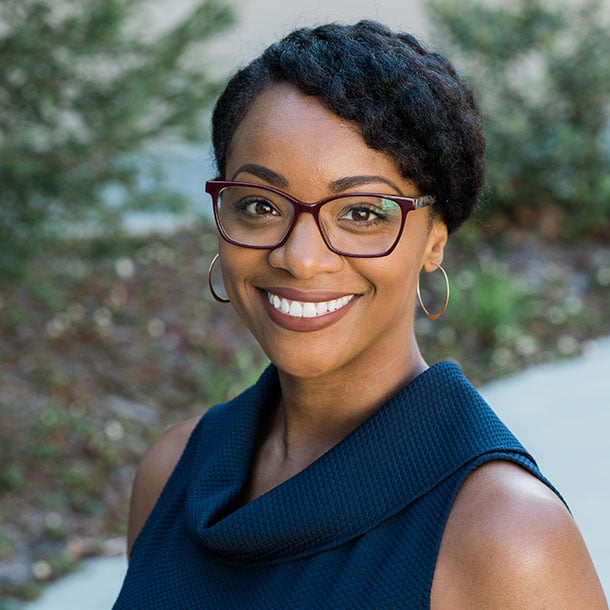 Top business schools are beginning to strategize how to become more inclusive, and Jennifer took the lead at Haas in designing and teaching the elective course, Equitable and Inclusive Leadership, open to executive, evening & weekend, and full-time MBA students. She blends her teaching with her career as an equity and inclusion entrepreneur at Inclusive Synergy. Her scientific work spans malaria prevention in Ethiopia and breast cancer research. At Hopkins, her research focused on the assembly mechanism of coronaviruses, enveloped viruses that develop into Golgi compartments, and was published in the Journal of Virology. You've had a successful career as a scientist. How do those skills translate to teaching at a business school like Haas? Contributing toward the social good and building a pool of wisdom together is at the heart of both science research and teaching. In science, you publish your findings, but the magic happens afterward—what will your readers, and the larger community, do with the information? It's the same with teaching. I present a leadership framework based on diversity and inclusion, and my students then figure out how to make use of those skills to make a change in the business world. I still get 'You're the first black woman scientist/black professor I've met,' and this is another reason translating my science career to teaching at Haas is important: to increase representation in both the STEM (science, technology, engineering and math) and business worlds. I have a passion for doing inclusion work, and I'd like to make enough of an impact that we won't hear this kind of comment anymore. What are some of the concepts you teach in your Equitable and Inclusive Leadership course? This summer we tackled the question of how we can leverage our identities to create environments where everyone feels welcomed to be their best selves. The concept is about self-awareness, agency, and using one’s gifts and privileges for the greatest good. My students are predominately white—black, Latinx, differently-abled and LGBTQ students are still underrepresented here at Haas and within leadership roles across industries—so the idea is to explore how important diversity is to all of us, and that we share the responsibility to make it happen. The truth is that harnessing the competitive advantage of a diverse team is a key 21st century skill. I would love to see Haas be a leader in inclusive academic excellence." How would you describe your teaching style? I try to model the inclusivity I seek to teach. Before I started this summer's class I held two student focus groups to help me design the curriculum, so that I could discover how best to communicate what the students said they wanted to learn. I polled my students before and after the class for feedback. Almost half of my students are already in management positions, with more than a decade of work experience, so these are the people who are doing the recruitment for their companies, trying to retain employees, and are either protecting the status quo or taking on more inclusive leadership practices. I also put together a diverse teaching team, hiring graduate student instructors who are women of color and alumni of Haas. What is your favorite classroom activity or assignment? One of my favorite assignments is having students choose an environment where they don't necessarily fit in and spend time there, both observing and being observed. Afterwards they write a reflection paper on the experience and we have a class discussion. The goal of this assignment is to synthesize ‘otherness’ in order to emphasize the importance of belonging. Students gain empathy through this experience and are challenged to be proactive about creating inclusive workspaces. What do you hope your students will take away from your class? I want my students to have a sense of ownership and agency around diversity, equity, and inclusion and to be empowered to act. To move beyond ‘random acts of equity’ toward helping develop policies and protocols that truly disrupt marginalization. And I would love to see Haas be a leader in inclusive academic excellence—to see equity and inclusion celebrated in students, faculty, and staff in the same way we might celebrate green initiatives or technological creativity. The expertise and insight your professors bring helps deepen and enhance your MBA journey. By selecting a top school with top-notch professors, you maximize your experience. Read more from the Take 5 with a Professor series:

|
| FROM Haas Admissions Blog: Take 5 with Jennifer R. Cohen, PhD |
Jennifer R. Cohen, PhD, is both data- and diversity-driven. Her scientific credentials—educated at City College of San Francisco and Howard University, she earned her doctorate in biochemistry, cellular and molecular biology at Johns Hopkins University School of Medicine—are matched only by her passion for creating inclusive communities where “everyone feels welcome to be their best selves.” Top business schools are beginning to strategize how to become more inclusive, and Jennifer took the lead at Haas in designing and teaching the elective course, Equitable and Inclusive Leadership, open to executive, evening & weekend, and full-time MBA students. She blends her teaching with her career as an equity and inclusion entrepreneur at Inclusive Synergy. Her scientific work spans malaria prevention in Ethiopia and breast cancer research. At Hopkins, her research focused on the assembly mechanism of coronaviruses, enveloped viruses that develop into Golgi compartments, and was published in the Journal of Virology. You've had a successful career as a scientist. How do those skills translate to teaching at a business school like Haas? Contributing toward the social good and building a pool of wisdom together is at the heart of both science research and teaching. In science, you publish your findings, but the magic happens afterward—what will your readers, and the larger community, do with the information? It's the same with teaching. I present a leadership framework based on diversity and inclusion, and my students then figure out how to make use of those skills to make a change in the business world. I still get 'You're the first black woman scientist/black professor I've met,' and this is another reason translating my science career to teaching at Haas is important: to increase representation in both the STEM (science, technology, engineering and math) and business worlds. I have a passion for doing inclusion work, and I'd like to make enough of an impact that we won't hear this kind of comment anymore. What are some of the concepts you teach in your Equitable and Inclusive Leadership course? This summer we tackled the question of how we can leverage our identities to create environments where everyone feels welcomed to be their best selves. The concept is about self-awareness, agency, and using one’s gifts and privileges for the greatest good. My students are predominately white—black, Latinx, differently-abled and LGBTQ students are still underrepresented here at Haas and within leadership roles across industries—so the idea is to explore how important diversity is to all of us, and that we share the responsibility to make it happen. The truth is that harnessing the competitive advantage of a diverse team is a key 21st century skill. I would love to see Haas be a leader in inclusive academic excellence." How would you describe your teaching style? I try to model the inclusivity I seek to teach. Before I started this summer's class I held two student focus groups to help me design the curriculum, so that I could discover how best to communicate what the students said they wanted to learn. I polled my students before and after the class for feedback. Almost half of my students are already in management positions, with more than a decade of work experience, so these are the people who are doing the recruitment for their companies, trying to retain employees, and are either protecting the status quo or taking on more inclusive leadership practices. I also put together a diverse teaching team, hiring graduate student instructors who are women of color and alumni of Haas. What is your favorite classroom activity or assignment? One of my favorite assignments is having students choose an environment where they don't necessarily fit in and spend time there, both observing and being observed. Afterwards they write a reflection paper on the experience and we have a class discussion. The goal of this assignment is to synthesize ‘otherness’ in order to emphasize the importance of belonging. Students gain empathy through this experience and are challenged to be proactive about creating inclusive workspaces. What do you hope your students will take away from your class? I want my students to have a sense of ownership and agency around diversity, equity, and inclusion and to be empowered to act. To move beyond ‘random acts of equity’ toward helping develop policies and protocols that truly disrupt marginalization. And I would love to see Haas be a leader in inclusive academic excellence—to see equity and inclusion celebrated in students, faculty, and staff in the same way we might celebrate green initiatives or technological creativity. The expertise and insight your professors bring helps deepen and enhance your MBA journey. By selecting a top school with top-notch professors, you maximize your experience. Read more from the Take 5 with a professor series:

|
| FROM Haas Admissions Blog: How a surgeon saw an MBA as key to his future in healthcare |
Before business school, Howard “Nando” Cooke, EMBA 19, had a highly specialized skill set. A maxillofacial surgeon, he could mend a cleft palate, repair a broken jaw, and fix all manner of problems concerning the face, mouth, or jaw. In the operating room, he knew how to excel.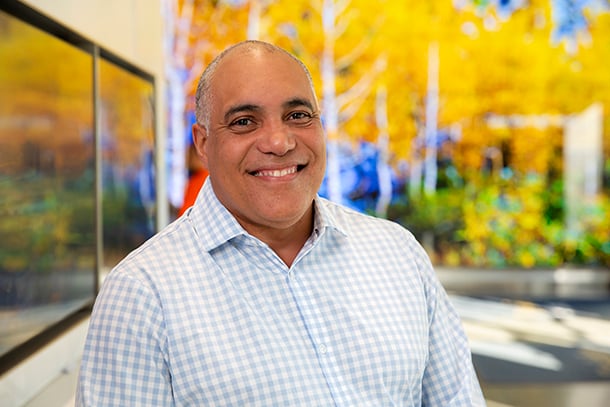 But give him a spreadsheet and watch a man sweat. In twenty years of medicine, Nando had never once used Excel. “That tells you the point from which I started,” Nando says, laughing. “So everything at business school was a stretch for me! I don’t think there was any class where I wasn’t learning the material almost from scratch.” Before enrolling in the Berkeley MBA for Executives Program, Nando had never taken a single business class. He had built—and sold—two major surgery practices in greater Dallas-Fort Worth. And as he looked toward the future of healthcare, he realized: “If the future of medicine is going to be dominated by insurance companies and business people, then I need to learn business.” Many of the core subjects, like Financial Accounting, Managerial Economics, and Operations Management, were a struggle and a revelation. “It was all new learning for me,” he says. “In every class, you’d see my brain pinging with thoughts of, ‘Oh my gosh! How can I apply this?’” When the curriculum turned to organizational management and behavior, he felt right at home. “How to manage a team, how to work with teams, the HR responsibilities that come with running a small enterprise… the stuff in medical school you will never ever learn about—that’s the stuff I apply every day.” After enrolling at Haas, Nando discovered what he calls “a hidden gem”: electives he took through the Berkeley School of Public Health. Healthcare Finance and Healthcare Organizational Management and Behavior were both taught online, which harmonized with his travel and on-call surgery schedule. Both focused on the business side of medicine—bringing it all together. “This was a missing link for me,” Nando says. “It helped me tie the dots between the core business subjects (which were hard for me to relate to at times) and the things I do working in hospitals and in private practice.” The climax of his time at Haas was participating in the Global Network for Advanced Management (GNAM), an international exchange program. In Ghana, working with a team of MBA students from Haas and Yale, he helped get a hospital up and running. “They built this beautiful facility but had no plans for running it,” Nando says. Suddenly, he found himself right in his element. “Not only did I have the knowledge within healthcare, and the knowledge of having run businesses in the US, but now I had a Berkeley MBA background that I could use to help them run this enterprise. I felt really special.” 
|
| FROM Haas Admissions Blog: Three time management skills you'll master in business school |
Most students come to business school to grow their business acumen and learn new skills in core subjects like data analysis, finance, marketing, strategy, and economics. And while the rigorous curriculum addresses all those topics, some of the most profound lessons happen after the professors are done teaching. The business school experience itself becomes a crash course in time management.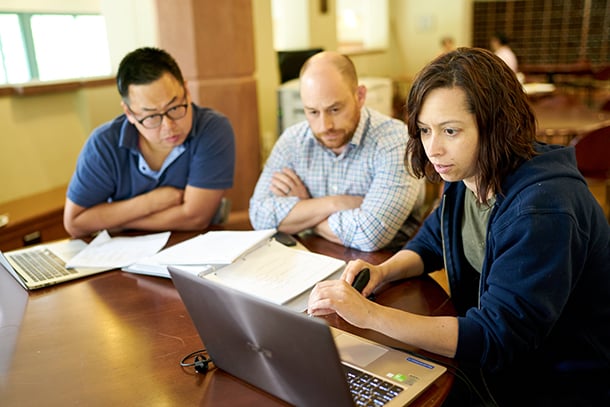 Ask any MBA student, and you’ll hear them admit it’s tough to juggle all the added responsibilities the program brings to the table. One of the most common fears students have when applying for an MBA is how they are going to fit such a large time commitment into their already busy lives. While it’s certainly a challenge, it is possible. Here are three time management skills you’ll master in business school. 1. How to tap into your resources Business school has no shortage of activity. From lectures to assignments to on- and off-campus events and extracurriculars, you'll be busy all the time. You'll often have to switch tracks at a moment's notice. Adaptability will be crucial as you learn to get comfortable with multi-tasking. The ability to be resourceful will also be crucial. The good news is you'll be surrounded by resources: your classmates, your professors, the nearby alumni network, and career management services—just to name a few. Take advantage of the vast amount of resources you'll have in such close proximity. Lean into your classmates' strengths, and work as a team to accomplish projects more efficiently. “I felt very fortunate to be in the Bay Area as it gave me limitless access to various startups and accelerators focused on healthcare,” said Jane Alston, MBA 19. “There were so many opportunities for me to break out of my clinical silo and gain valuable skills within these nimble companies on the strategic and operational side of business. These experiences proved invaluable to me in future large scale endeavors such as hospital administration.” 2. The art of ruthless prioritization Prioritization becomes key to completing your MBA and making the most of your time in business school. You'll learn prioritization strategies in your business management classes that you can begin implementing immediately. Between classes, group work, assignments, studying, and events, you’ll have a lot on your plate. Not to mention everything you’ve got going on outside of school. You simply cannot dedicate 100% of your time, energy, and focus to every one of the commitments above. Business school forces you to develop a razor-sharp ability to prioritize. You do what you have to do, and then you do what you love to do. Swetha Tupelly, MBA 16, had to learn how to balance her evening & weekend MBA program with her job as a senior product manager at Le Tote and as a wife and mother. “I like to succeed at whatever I do,” she said. “But with so much going on in my life – three really diverse areas of demands – I found I just couldn’t do it all. I had to prioritize the heck out of everything and make peace with the fact that I couldn’t excel all the time. What keeps you going are all the fascinating things you’re learning and the interesting colleagues you’re working with.” 3. How to effectively delegate tasks You’ll find yourself doing a lot of group work during business school. You can’t—and shouldn’t—do everything yourself. MBA students get really creative when it comes to delegating different tasks within a group. They learn to lean into each other's strengths and work as a team Of course delegating tasks will lighten your workload, but it will do much more to develop you as a strong leader. Delegating empowers your team, builds trust, and aids in professional development. It helps you learn how to identify who is best suited to tackle certain tasks or projects. “We do so much group work in the program. I’ve come to understand that each group project is a bit like running a small company, so you’re learning leadership lessons all the time, in every class,” said Hannah Greenberg, EMBA 20. “In our groups, we need to function as a unit, to recognize each other’s strengths and weaknesses, and to trust everyone to hold up their end.” Are you ready to move forward in your professional life? There are many other skills you’ll sharpen as a part-time or full-time MBA student. 
|
| FROM Haas Admissions Blog: Employably speaking: the MBA from the eyes of a hiring manager at Amazon Web Services |
Whether you see your MBA as a step toward switching careers or moving up a rung or two in the field that already fuels your passion, the job you land after graduation is one tangible measure of the return on your investment of effort, time and money. To put that ROI in perspective, 2019 Berkeley Haas grads earn a median starting salary of $140,000.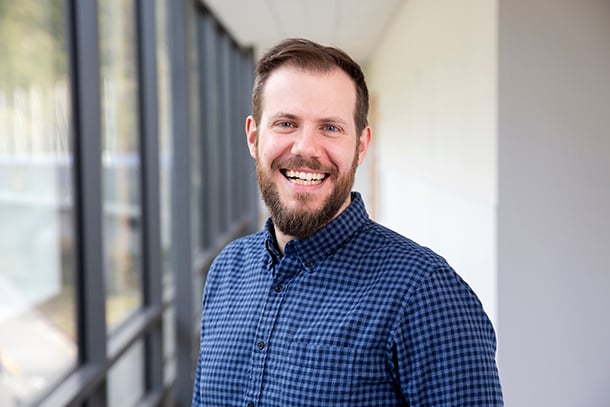 The posts in this occasional series—Employably Speaking—highlight some of the employers who benefit from graduates of Berkeley Haas and share insights into the skills and traits those companies look for when interviewing for interns and MBA hires. “In terms of tech jobs, we have seen the center of gravity moving north from Silicon Valley, and Berkeley Haas graduates have definitely benefited from this,” notes Abby Scott, assistant dean, MBA Career Management Services and Corporate Partnerships. “They have had greater access to some of the larger technology employers and to smaller start-ups for more frequent coffee chats and company visits.” Here, we feature Amazon Web Services (AWS), a world leader in the cloud-platform space. Marco Cagna, MBA 16, a principal PMT-ES (product manager, technical–External Services) with AWS, spends his days working on AWS Global Accelerator, a service that improves global application availability and performance for customers using the AWS global network. He has an important side gig hiring future interns and employees among current Berkeley Haas MBA students. We asked Marco a few questions about his experience and how he looks at recruitment. Answers have been condensed for brevity and clarity. What does AWS look for when recruiting MBA candidates? The Amazon Leadership Principles help us make decisions every day at Amazon, and we specifically use them when we interview candidates. We want to ensure everyone we hire understands that every decision we make starts with the customer and then works backwards. Ownership is another leadership principle we focus on during interviews. We look for people who can take ownership from day one, who not only can find problems, but fix them as well. Another trait we look for in MBA candidates is their ability to invent and simplify. This principle relates to the kind of design thinking encouraged at Berkeley Haas. In many ways the Haas Defining Leadership Principles overlap with the Amazon Leadership Principles. Learn and Be Curious, for example, is much like being a Student Always. It is very fulfilling to interview students when they are able to cite examples that are relevant to the leadership principles at both Amazon and Berkeley Haas. I’ve noticed for internship positions, Berkeley Haas students are very well prepared for their interviews. They come in with a good degree of confidence but are not overly confident. This is consistent with having Confidence Without Attitude. What makes an MBA candidate stand out from the crowd? When we look for candidates, specifically for PMTs and other technical positions, we know these roles require a STEM background, either academic—for example, a degree in engineering or computer science—or relevant job experience in technology. And then we layer on the skills that all tech and non-tech product managers need including rigorous analytic skills, problem solving abilities, good communication, and leadership skills. The farther you progress in the interviewing process, the more important it is to demonstrate that you can dive deep into a topic. We look for people who can tell stories and give pertinent examples that speak to the Amazon Leadership Principles, as well as other job requirements. We want to know how comfortable a candidate is with analyzing ambiguous problems with a structured approach. What specific roles do Amazon and AWS, specifically, recruit for in which an MBA is essential? Amazon recruits MBA students to a wide variety of roles across the company including program management, product management, and product management technical—as well as leadership development programs in Finance, Operations, and Retail. In AWS, we continue to expand the opportunities offered to MBAs. This fall we introduced a new role option specific to AWS— product manager, technical-External Services—which partners exclusively with AWS’ external customers and is actually my current role. When does AWS recruit at Berkeley Haas? Teams are on campus in the fall to give information sessions and meet with students. Interviews for full-time positions for second-year students kick off in the fall and run through early spring. Our fall visits give students the opportunity to think about different jobs and companies before interviewing for summer internship positions in January and February. We’re also involved with Berkeley Haas much more broadly beyond the recruiting cycle. Amazon sponsored the 2018 Haas Tech Challenge, and I was pleased to be involved in organizing the event. It was a terrific way to get to know some of the students better, and I am really happy to give back to the school that has been so much a part of my career development. There also are a number of Berkeley Haas grads at both AWS and Amazon overall. I myself was recruited by one: Alex Dunlap, MBA 07. The idea of going Beyond Yourself, another Haas Defining Leadership Principle, is common among the alums I know here at Amazon and among my classmates. That feeling of community is another important aspect of the ROI of an MBA from Berkeley Haas. 
|
| FROM Haas Admissions Blog: Employably speaking: the MBA from the eyes of a hiring manager at Amazon Web Services |
Whether you see your MBA as a step toward switching careers or moving up a rung or two in the field that already fuels your passion, the job you land after graduation is one tangible measure of the return on your investment of effort, time and money. To put that ROI in perspective, 2019 Berkeley Haas grads earn a median starting salary of $140,000. The posts in this occasional series—Employably Speaking—highlight some of the employers who benefit from graduates of Berkeley Haas and share insights into the skills and traits those companies look for when interviewing for interns and MBA hires. “In terms of tech jobs, we have seen the center of gravity moving north from Silicon Valley, and Berkeley Haas graduates have definitely benefited from this,” notes Abby Scott, assistant dean, MBA Career Management Services and Corporate Partnerships. “They have had greater access to some of the larger technology employers and to smaller start-ups for more frequent coffee chats and company visits.” Here, we feature Amazon Web Services (AWS), a world leader in the cloud-platform space. Marco Cagna, MBA 16, a principal PMT-ES (product manager, technical–External Services) with AWS, spends his days working on AWS Global Accelerator, a service that improves global application availability and performance for customers using the AWS global network. He has an important side gig hiring future interns and employees among current Berkeley Haas MBA students. We asked Marco a few questions about his experience and how he looks at recruitment. Answers have been condensed for brevity and clarity. What does AWS look for when recruiting MBA candidates? The Amazon Leadership Principles help us make decisions every day at Amazon, and we specifically use them when we interview candidates. We want to ensure everyone we hire understands that every decision we make starts with the customer and then works backwards. Ownership is another leadership principle we focus on during interviews. We look for people who can take ownership from day one, who not only can find problems, but fix them as well. Another trait we look for in MBA candidates is their ability to invent and simplify. This principle relates to the kind of design thinking encouraged at Berkeley Haas. In many ways the Haas Defining Leadership Principles overlap with the Amazon Leadership Principles. Learn and Be Curious, for example, is much like being a Student Always. It is very fulfilling to interview students when they are able to cite examples that are relevant to the leadership principles at both Amazon and Berkeley Haas. I’ve noticed for internship positions, Berkeley Haas students are very well prepared for their interviews. They come in with a good degree of confidence but are not overly confident. This is consistent with having Confidence Without Attitude. What makes an MBA candidate stand out from the crowd? When we look for candidates, specifically for PMTs and other technical positions, we know these roles require a STEM background, either academic—for example, a degree in engineering or computer science—or relevant job experience in technology. And then we layer on the skills that all tech and non-tech product managers need including rigorous analytic skills, problem solving abilities, good communication, and leadership skills. The farther you progress in the interviewing process, the more important it is to demonstrate that you can dive deep into a topic. We look for people who can tell stories and give pertinent examples that speak to the Amazon Leadership Principles, as well as other job requirements. We want to know how comfortable a candidate is with analyzing ambiguous problems with a structured approach. What specific roles do Amazon and AWS, specifically, recruit for in which an MBA is essential? Amazon recruits MBA students to a wide variety of roles across the company including program management, product management, and product management technical—as well as leadership development programs in Finance, Operations, and Retail. In AWS, we continue to expand the opportunities offered to MBAs. This fall we introduced a new role option specific to AWS— product manager, technical-External Services—which partners exclusively with AWS’ external customers and is actually my current role. When does AWS recruit at Berkeley Haas? Teams are on campus in the fall to give information sessions and meet with students. Interviews for full-time positions for second-year students kick off in the fall and run through early spring. Our fall visits give students the opportunity to think about different jobs and companies before interviewing for summer internship positions in January and February. We’re also involved with Berkeley Haas much more broadly beyond the recruiting cycle. Amazon sponsored the 2018 Haas Tech Challenge, and I was pleased to be involved in organizing the event. It was a terrific way to get to know some of the students better, and I am really happy to give back to the school that has been so much a part of my career development. There also are a number of Berkeley Haas grads at both AWS and Amazon overall. I myself was recruited by one: Alex Dunlap, MBA 07. The idea of going Beyond Yourself, another Haas Defining Leadership Principle, is common among the alums I know here at Amazon and among my classmates. That feeling of community is another important aspect of the ROI of an MBA from Berkeley Haas. 
|
| FROM Haas Admissions Blog: Five reasons why MBA grads chose Berkeley Haas |
There are many reasons why working professionals choose to pursue an MBA—from career advancement or making a career change to starting their own business to personal fulfillment. “For a long time, people had been telling me to go to business school. But I wasn’t sure why I would be going, and I wasn’t really sure what I wanted to do afterwards,” says Joanna Shujman, MBA 17. Before you can find the right business school you need to define why you want your MBA in the first place. Once you’ve gained clarity around your motivations for the degree, you’ll be one step closer to finding a top MBA program that best fits your needs. Here are five reasons why recent full-time MBA grads chose Berkeley Haas. 1. Culture that encourages collaboration over competition “When I was choosing a business school, I wanted to make sure I was going to be in a community where people were supportive of one another, even if we’re growing in different directions and working on different things,” says Amy Fan, MBA 19. “This is the most supportive environment that I have ever seen in my entire life,” says Joanna. “I was just struck by how humble and how collaborative and supportive and talented every single person I met from this school was. That is the environment I wanted to be in.” “Once I came out to Haas and visited and saw the small class size and what it meant for the tight-knit community that I would be able to cultivate here, that really was the tipping point for me,” says Shom Gupta, MBA 19. 2. Exposure to people with diverse backgrounds “Haas really attracts people from a very diverse set of backgrounds. I wanted to get exposure to a lot of different paths that I may not have even known existed,” says Joanna. “Haas seemed like the perfect place to expose me to all those different potential paths so that I could understand more about them and make my own.” “I wanted to be surrounded by peers who weren’t all going into the same thing or interested in the same industry or same handful of jobs,” says Chen Song, MBA 18. “Berkeley really stood out to me for the people that I met along the way during the admissions process who shared such a broad variety of interests—whether it was nonprofit leadership or things more traditional like consulting or banking.” 3. Location at the epicenter of innovation “I wanted to get exposure to the full Berkeley ecosystem including the core science and technology that’s coming out of the labs,” says Shantanu Mittal, MBA 17. “I wanted exposure to the biggest and best names in the biotechnology industry and the ability to collaborate with them.” “You really can’t find a better place that is just nestled in the middle of so many huge tectonic shifts in technology. It’s really the epicenter of innovation,” says Kyle Bertin, MBA 18. “Obviously the Bay Area is beautiful, and then there’s such great access to companies here. Really, anything you’re looking for—big, small, something in between,” says Erin Casale, MBA 19. “I was excited about the options that gave me.” 4. Ecosystem that provides clarity on leadership style and career path “I think Haas is a place that builds really true leaders. And we do it in a way that is different and unique than many other top business schools,” says Amanda Parker, MBA 18. “I find myself coming out of Haas as a new person. Going through that transformation was one of the most rewarding experiences of my life.” “I think the benefit of Berkeley Haas is that it really changes the frameworks you think about your life through. To have a class at a top tier business school makes space to ask, ‘What do you want to do, and why do you want to do it?’ says Adrian Rodrigues, MBA 18. “To have that conversation before jumping into the next phase of my career really allowed me to have a metamorphosis-like experience where I got to redefine the type of business leader I wanted to be.” “Haas is an amazing place to not know what you want to do. You’ll be surrounded by people who have passions and interests that you’ve probably never heard of or ever even considered,” says Chen. “What that did for me was open up brand new ways of thinking and brand new lenses to look at the world through in terms of what’s possible for me or what I might be interested in.” 5. To learn fundamental business skills but with a mindset for change “Haas really screams out responsible business and social impact to me, and those are issues I’m passionate about,” says Shom. “I want to use my business education to drive a meaningful impact in the world, and Haas really has a strong reputation for that.” “Haas has found a way to teach the fundamentals and blend that with a mindset for change, innovation, and challenging what you think you know. You won’t find that anywhere else,” says Amanda. “Being a conscientious business person was one of the primary reasons I came to Haas. I didn’t want to just be in it for the bottom line. I didn’t want to just be a business person that thought solely about returning value to the shareholders—although of course that’s important too. I was really interested in what it meant to run a sustainable business and to learn about those practices in a way that was both strategic but also ethical and moral and good. And I found that at Haas, everything we learned was geared toward being both a fiscally responsible leader as well as a person who was conscientious about our people and our practices and our products. It’s something I value the most out of my time at Haas.” 
|
| FROM Haas Admissions Blog: How Uber's Senior Marketing Insights Manager bridged passions for people and storytelling—and made it a career |
With an educational background in anthropology and film, Joanna Shujman, MBA 17, had a passion for people and storytelling. After working in human capital consulting for several years, she came back for an MBA at Berkeley Haas, where she learned how to translate her storytelling skills into a career in market research. Joanna told us how empathy and people-based leadership have given her an edge in a career based on numbers and trends.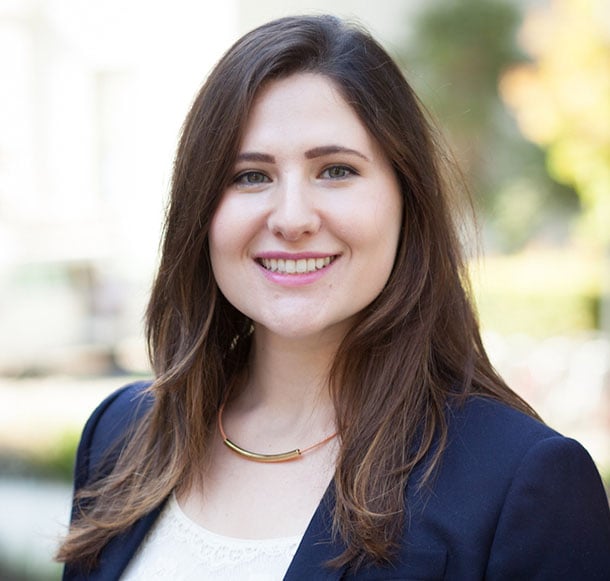 You have quite an interesting title at Uber: Senior Marketing Insights Manager – Safety. How would you describe your job? What do you love about it? I do market research to understand how people experience safety, in order to help Uber develop new innovative products and continue raising the bar on safety. I thought safety would be a rich emotional field to play in. That’s where I get a lot of my energy—digging into people’s emotions and understanding how they experience things that are very intimate. I came to this job from the food industry. Like food, safety is extremely personal. I love working with all types of data in a way that uses both my left and right brain. Some of the data is quantitative: Finding trends in the data, looking for patterns in the numbers to identify areas of opportunity. For example, are people in a certain geography feeling less safe than in another geography? The other side is qualitative data: Talking one-on-one with a female driver, for example, to understand the vulnerability she feels when working alone late at night. Qualitative data provides a more nuanced understanding of the patterns you see in the numbers. Your educational background in anthropology and film bridges your two passions: people and storytelling. How did that intersection translate to a career in marketing? My whole life, I’ve had two big passions: Understanding people and how they relate to the world, and trying to relate to people through story. In college, I saw film as a way to study culture. My film courses helped me understand other areas of the world—cultures I had no familiarity with—through the power of visual storytelling. It helped me think about storytelling in different ways. Early in my career, I experimented with different ways of applying my passions. First I went into human capital consulting, which I thought would be a great way to focus on people. It gave me a foundational experience in business, but I was craving a more direct link to creativity and storytelling. Then I did a sabbatical in the film industry, but I didn’t have the right functional fit. I thought: There must be a way to combine these things in a way that’s not obvious. In the full-time MBA program at Haas I discovered the nuances of marketing. In consulting I felt too far removed from the consumer. In market research, you get to be the voice of the consumer and tell their story—who they are, what they care about, and what they need and want from you as a company. And you get to create the story of who you are as a brand. I loved the opportunity to be focused on people and stories. How did you tailor your MBA curriculum to be specifically relevant for your industry? Before Haas, I had never taken a single business class, so I didn’t opt out of anything. My first year, I focused on core business classes. It was great to get some exposure to things I previously had no frame of reference for, like finance, accounting, and microeconomics. It also reaffirmed my instinct that marketing was a functional fit for me. So I started taking more marketing classes—Strategic Brand Management, Marketing Analytics, and Marketing Research—and I also did an internship in Market Research. I also chose classes that focused on leadership, coaching, and relating to people. I loved Jennifer Chatman’s leadership class and Cort Worthington’s coaching conversations class. I’ve used the lessons from those leadership classes constantly—they’re part of my DNA now. What’s your leadership style? How has that evolved throughout your career and studies? I’m a very people-focused leader. I prioritize relationships and the well-being of others. In terms of getting things done and influencing people, I tend to do that through relationship-building and coalition-building. I think I always over-indexed on that. But it wasn’t until Haas that I had the words for that as a strength. Starting in consulting, I always knew relationship-building was important in a general sense. But at Haas I learned more about the nuances of this approach and its value as a strength. How has my leadership style evolved? I’ve learned to recognize times when I need to intentionally turn on other styles. I’m better at assessing my whole toolbox and knowing when I need to choose a different tool. Gaining consensus and diplomacy sometimes isn’t the right tool to use when you just need to get a decision made. So I’m getting better at spotting the times when I need to dial down my priority for relationships, too. How did you get connected with Uber? That’s a Haas story! I was back on campus attending the Haas Marketing Summit, where the president of Annie’s—where I was working at the time—was speaking. There was a panel about marketing careers in tech, and I heard alum Nick Silver, MBA 11, speak about his role as Product Marketing Manager on the Uber Safety Team. He spoke about safety marketing and said that empathizing with people in vulnerable positions was part of the job. That sounded SO interesting. I approached him after the panel to ask him a question. He said, “Hey, we’re hiring a market researcher. Are you interested?” I was not looking for a new job at all. Before I knew it, I was in the interview process. Four weeks later I had a job in hand. What did you learn in your MBA that’s proving useful now at Uber? Foundational business knowledge—how a business operates and what strategy looks like—is something I use every day. I need to know how the data I’m seeing ladders up to bigger decisions, so I can recommend the right actions. Then there are job-specific technical skills like how to write a survey, how to spot leading questions, how to write a research plan. I didn’t know anything about statistics before Haas. I had never even seen a normal distribution! Now I deal with statistics every day. In a broader sense, I learned a level of confidence at Haas that I did not have before. Confidence that, when I see something I don’t know how to do, I have the ability to figure it out. 
|
| FROM Haas Admissions Blog: Take 5 with Professor Jennifer Chatman |
Jennifer Chatman, Paul J. Cortese Distinguished Professor of Management, is an energetic, passionate teacher, a Haas alumna (PhD 88), and an expert on organizational culture. As co-founder and director of theBerkeley Haas Culture Initiative, she helps drive research on corporate culture and improve performance and the corporate bottom line.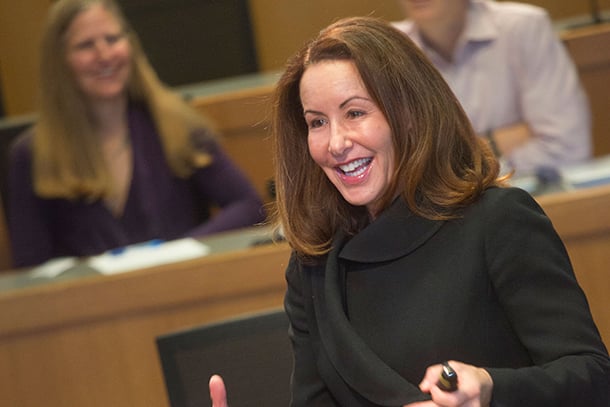 Her research explores the dangers of narcissistic leaders, how to leverage team diversity, and the benefits of an innovative, adaptive culture. Chatman’s work has been featured in academic journals as well as media outlets ranging from the Wall Street Journal, Inc., and Fortune to Glamour and Working Mother magazine. A sought-after consultant, she has worked with a broad variety of organizations including Sony, Genentech, Maersk, and Raiders Football. What excites you most about teaching? That’s easy—the students! Their level of energy, brilliance, and motivation. I get to stand by this well of excitement and creativity. That never gets old. It’s also humbling in the sense that I need to ensure what I offer them is current and useful. What differentiates Haas students from those you’ve taught at other business schools? I’d have to say the Beyond Yourself part of our Defining Leadership Principles. Haas students don’t just want to do something exciting and lucrative for themselves. Many want to change the world in a significant way—either making things better for others or developing an idea that will accelerate other people’s quality of life. Our students are an inspiration. What does it take to build an effective organizational culture? An effective culture ought to provide employees with a roadmap, particularly with regard to how you make tough trade-offs between competing priorities. In my research, I’ve developed criteria we think is important. The first criterion is that the culture needs to be strategically relevant, meaning people need to prioritize the behaviors that will help the organization get across a designated finish line. Second, the culture needs to be strong, meaning people trust that it’s real. It can’t be hot air that executives spout because it sounds good. It has to be backed by a track record of recognition, hiring practice, and all the things that leaders and others in the organization do to prioritize what’s really important. Finally, the culture has to be adaptive over time. That means it must change a little bit each time you change the strategy. How does the Haas culture measure up? We are very proud of the culture we’ve cultivated at Haas. We did it by engaging in all the steps that culture research recommends. Richard Lyons, while serving as dean, codified ourDefining Leadership Principles (DLP) in 2010. He drew vast input from others and identified what strategically relevant things differentiated Haas from our competitor schools. We then developed about 180 business processes that have embedded the DLP. You can’t apply to be a student or work at this school without defining how the leadership principles relate to your values. We also reward students and faculty for their orientation toward our DLP. With Dean Ann Harrison, we’re seeing an evolution of the culture that includes diversity, equity, and inclusion along with entrepreneurship and climate change as themes that now overlay our DLPs. Why is theBerkeley Haas Culture Initiative so vital for today’s business climate? The Initiative marries the research world with the organizational world to develop a research agenda that leverages newly available data and methodological approaches. That’s important because for the very first time we have access to the kinds of data that enable us to answer questions that were elusive in the past. Questions like: How quickly does a culture change? Where does change start—from the bottom or the top? How long does it take for merging organizations to integrate their cultures? Today, rather than having to visit each individual organization, we can access digital sources like Glassdoor, where people have volunteered information about their company culture. Such sources contain data on hundreds of thousands of organizations. The Initiative also rounds out Haas’ portfolio. We’re already known as the business school most differentiated by its culture. So this is the research and corporate arm that reflects our reputation and serves as a knowledge center for how to create an effective organizational culture. The expertise and insight your professors bring helps deepen and enhance your MBA journey. By selecting a top school with top-notch professors, you maximize your experience. Read more from the Take 5 with a professor series:

|
| FROM Haas Admissions Blog: How to find female mentors in the workplace |
Most would agree connecting with the right mentor can help propel your career. Studies show women who have a mentor get more promotions, achieve higher pay and report increased happiness at work.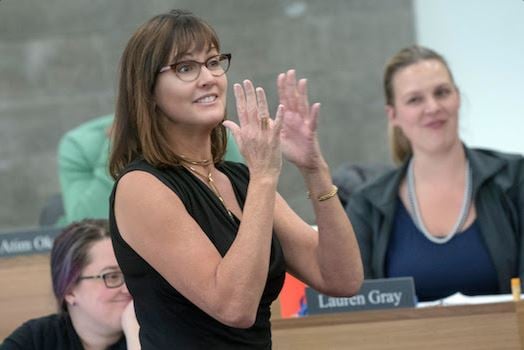 This paper from Associate Professor Sameer Srivastava reports that women gain more social capital from affiliation with a high-status mentor than their male counterparts. However, a Development Dimension International study found that “although 78 percent of women in senior roles served as formal mentors at one time or another, very few of them had a formal mentor of their own." An overwhelming 63 percent of women in the study reported that they have never had a formal mentor. This is cause for concern considering 67 percent of women surveyed rated mentorship as highly important in helping to advance their careers. So what can women do to find influential mentors? Here are a few tips. Don’t be afraid to ask Emilie Arel—CEO of Fullbeauty Brands, and a Haas School alumna—says that one of the things that women who aspire to move up in the organization need to get over is the perception that they have to know everything there is to know. “I think that a lot of times, as women in particular, we come into a situation—it could be my first time as CEO, or my first time as a vice president, or the first day of my MBA classes—thinking that to get a seat at the table, we have to know everything,” says Emilie. “That is just not the case. The more experiences you put yourself in, and more confidence you build around different groups of people, the more you realize you’re worth it and can—and should—ask for what you want.” “Ultimately, this boils down to confidence—having it, building it, nurturing it. When opportunities arrive on our doorstep, we need to take them and not shy away, thinking we are for some reason undeserving or unqualified,” adds Kellie McElhaney, Distinguished Teaching Fellow and the Founding Director of the Center for Equity, Gender and Leadership. Seek out opportunities to grow your network Confidence does come from experience and knowledge, and MBA programs are a good place to get both, along with a rich network of connections—with other students, instructors, and alumni. “At a conference, I heard a woman on a panel refer to a study that had surveyed women leaders and male leaders. Most of the characteristics between the genders were the same, except when they were asked the question, ‘Do you have a mentor or a sponsor who helped you get to where you are?’ The majority of men said yes, while the women said no. That resonated with me, and it's part of why I got my MBA at Haas—to find those mentors and sponsors,” says Laura Teclemariam, EMBA 18. “So I'd advise other women to make finding a career mentor a priority. Just think, if each person finds a mentor and then in return becomes a mentor in the future, we can grow the diversity pipeline.” Pay it forward One of the main reasons women struggle to find female mentors is because women fear they don’t have enough expertise to serve as a role model for others. But in most mentoring relationships, it is not subject matter and technical expertise with which less-experienced professionals struggle. They most often need help with core leadership skills like influencing, problem-solving, and negotiation. Emilie emphasizes the importance of supporting one another in the workplace, stating, “It sounds very cliché, but we have to pay it forward and help each other. I think it's part of my job to take every single recruiter call I get, even if I'm not looking for a job—which I'm not—but to say, ‘Here are five people who I know. You should call them.’ I also make a point to take every LinkedIn call I get, especially from women, to have a coffee with them or have a 15-minute phone call and see how I can connect them." “It’s my belief that each of us can play a powerfully positive role in shaping the cultures of the organizations for which we work, persistently nudging them in the direction of gender equity while dismantling policy and organizational obstacles that stand in the way for women in the workplace," Kellie adds. "There are a variety of ways that women—and men—can accomplish this." 
|

|
|
||
|
Hi Generic [Bot],
Here are updates for you:
ANNOUNCEMENTS
Tuck at Dartmouth
|